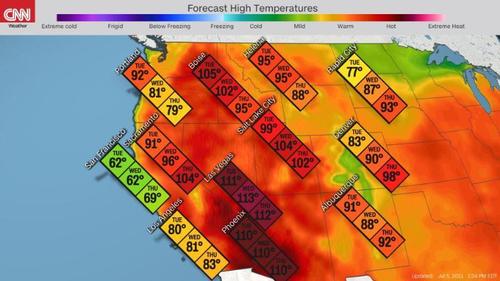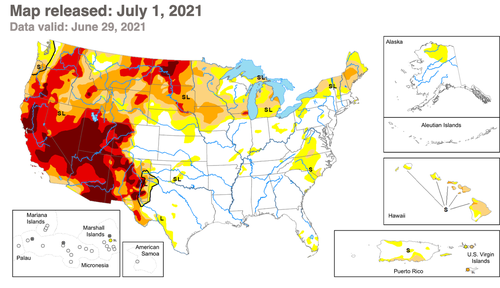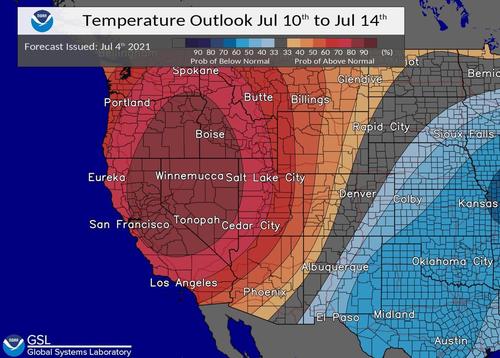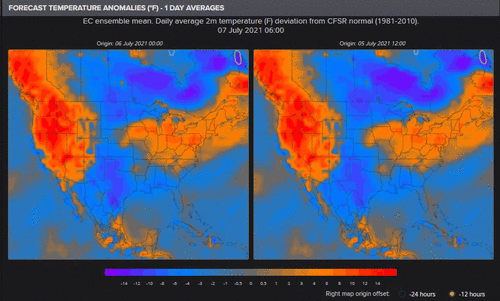Excessive Heat Continues To Plague Western States With No End In Sight
Scorching temperatures return to the West, persisting through mid-week, and reappear this weekend as multiple heat waves develop. Oregon, Washington, California, Idaho, and Nevada, are still grappling with record-setting heat and diminishing water supplies from last month’s heat wave. The next round of daytime highs may climb into the 90s and or triple digits. There’s no end in sight to the hellacious climate.
“Excessive and oppressive heat across the Northwest will continue through at least the first half of the week where daytime highs will climb well into the 90s and low 100s,” the Weather Prediction Center (WPC) wrote. “Daily record highs will, once again, be challenged by Tuesday and Wednesday for parts of the Great Basin and northern California.”
Eastern Oregon, Nevada, and Idaho could hit daily high records this week as temperatures may print in the high 90s to triple digits.
“This will bring near-record temperatures and could possibly be the warmest day of the year thus far,” the National Weather Service in Boise (NWS) said.
As of Tuesday, excessive heat warnings have already been posted for eastern Oregon and western Idaho. There are also heat advisories with temperatures expected to reach triple digits in Northern Nevada, Northern California, and Southern Oregon.
Wildfire risks continue to rise for western states as a megadrought continues to dry out vegetation.
This week’s heat wave is expected to peak Wednesday for most of the region, but temperatures will remain above averages. Another heat wave is expected to appear in some parts of the West into the weekend.
Eastern Washington, Oregon, and Idaho could see daily records taken out by the weekend. Highs in some parts of Northern California may print north of 110.
Western states will remain well above average temperatures through early next week.
Here are some problems for residents in western states that may arise due to excessive heat: soaring power costs, rolling blackouts, worsening drought conditions, and dwindling water supplies.
Tyler Durden
Tue, 07/06/2021 – 16:40
via ZeroHedge News https://ift.tt/2V3bedd Tyler Durden



